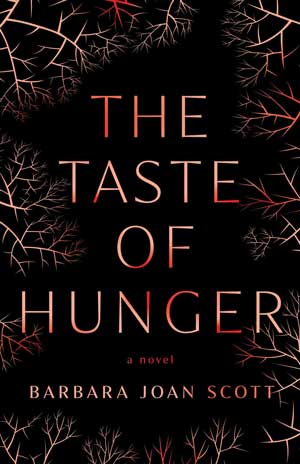Calgary writer Barbara Joan Scott’s debut novel, The Taste of Hunger, opens with an epigraph that acutely distills the novel’s expansive theme of existential hunger. It comes from Sappho: “because I prayed / this word / I want.” Delving into the convoluted psychic spaces of human longing and desire, Scott has written an ambitious novel with a broad, omniscient point of view that resonates with the sweeping 19th century political novels of Hardy, Hugo and Tolstoy. It tells a largely untold story of Ukrainian settlers on the prairies. Historically, these stories are relatively new, less than 200 years old, and though they exist in family and government archives, they haven’t yet been much taken up in Canadian fiction.
The novel spans the years 1929–1949. We meet Taras Zalesky in a bar in Estevan, a man running from a “long line of escapes”—from poverty in Galicia, from the Polish army during the First World War, and then coming to Canada to survive harsh menial labour in mines and railways and enduring “being treated like a bohunk by the ignorant English.” Taras meets another Ukrainian who has bitterly abandoned the brutal work of “proving up” a homestead. Signing title over to Taras, the man salvos a curse on the Canadian government’s propaganda campaign to lure Slavic settlers to the prairies: “What better to dangle in front of peasants than land, eh?” Land. Freedom. Primal human hungers fomented by the wars and displacements of empire. Predictably, there is no mention of the displacement of Indigenous peoples from the lands offered to the new immigrants—not surprising, given the systemic erasure of Indigenous stories from official narratives of the time.
Going to claim his land, Taras stops at a struggling homestead where he meets nubile 15-year-old Olena, her moonshiner father and her Aunt Varvara, a crone who sets up the Baba Yaga trope the novel repeatedly returns to. Olena is hungry to go to school, to become a teacher, but is coerced into marriage. Varvara’s wedding gifts are korovai (ceremonial Ukrainian wedding bread), a traditional song about the “sorrows of marriage for a young maiden” and a small bowl of “blood-red cut glass.” Scott has carefully chosen these symbols to carry the weight of primal urges for both bread and beauty, and to implicate the role of tradition in sustaining those hungers, for better and worse.
Scott writes sex well, not an easy thing to do. There’s a lot of it, mutually rewarding and not. Adultery, betrayal and intergenerational secrets thicken the plot before and after the family, now with two daughters, moves to town and buys a store. Less convincing for me is the book cover’s promise of “redemption and forgiveness.”
Jannie Edwards is a poet, teacher and editor in Edmonton.


